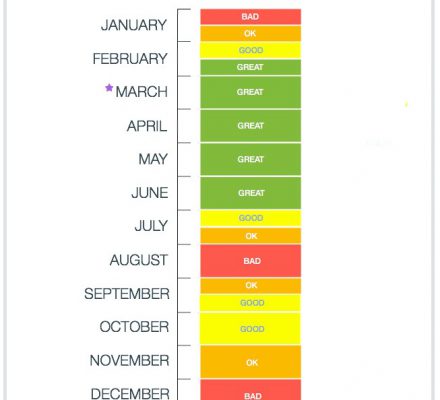When it comes to investing in real estate, you have a plethora of financing options. In this article, we will cover two of the most popular ways to finance real estate purchases—commercial loan vs residential loan—while highlighting their key differences. Let’s begin!
Becoming a real estate investor means you have some financial resources, but not enough to buy the building you want outright. Asides from that, you have full knowledge of how important leverage can be.
You also understand that the unique advantage real estate has over other forms of investments is its ability to earn revenue using another person’s money. Furthermore, the cash on cash return is bound to be significantly bigger if you purchase the property using a loan instead of paying the entire price.
With that in mind, let’s discuss the differences between commercial loan vs residential loan.
Commercial Real Estate Loan
A commercial real estate loan can be used for just about any rental property, so much so that you can use a commercial loan to purchase a single-family home if necessary. Nevertheless, most investors tend to use residential loans for smaller units. The reason for this is that commercial loans are typically more expensive.
They come with a shorter home loan term—generally, 20 years instead of the 30 years found with residential loans—and higher interest rates, which significantly raise your monthly mortgage payments. A commercial loan is available for properties with a minimum of 5 units, while residential loans can be gotten for properties with a maximum of 4 units.
A commercial real estate loan makes sense if you are interested in purchasing a property in the name of a limited liability company rather than your name. Compared to residential loans, commercial loan providers do not have any problems issuing loans to LLCs.
With a commercial loan, you don’t have to be concerned about quitclaiming triggering your sale on clause. This means when you transfer the loan to your LLC, your lender won’t call your loan and make the entire loan balance available.
Another issue with quitclaiming on a residential loan is that the title insurance might not transfer to the LLC, and if there is an issue with the title, your insurance might not cover the cost to solve this issue. This happens with a commercial loan as everything has already been placed in the name of your LLC. You don’t have to worry about starting a quitclaim process, losing title insurance, or the due on sale clause.
One of the most important reasons real estate investors choose commercial loans is that they might not have the W-2 history or income to qualify for a residential loan. Typically, banks and mortgage lenders prefer W2s with years of income history. So, it could be that you don’t have much of an income, or perhaps you run your own business and haven’t been paying yourself a salary, just dividends.
Since commercial loans are judged by the performance of the underwritten property and not your finances by a commercial lender, it is a lot easier to qualify for a commercial loan.
Furthermore, there are no limits to how many commercial loans you can get, whereas residential loans are limited to 10 for individuals. For married couples, the maximum is extended to 20 residential loans (10 each).
Residential Loan
A residential loan can be defined as a basic loan similar to the type you would get when purchasing your primary residence. The major difference is that you typically have to pay down a higher percentage than you ordinarily would—25% for a residential loan on your investment property compared to a record low of 3% for an FHA primary residence loan.
You should also note that your interest rate when taking out a residential mortgage loan on an investment property is bound to be higher.
Similar to getting a loan for your primary residence, your residential loan can provide you with 30 years term. And while there are possibilities for shorter loans, financial experts recommend obtaining a 30-year loan as it provides you with the needed flexibility while keeping your options open. It is possible to pay off a 30-year loan in half the time, so long as you have the flexibility.
The same cannot be said for a 15-year mortgage, as you will have no other option but to finish paying the loan off within the allotted time. This is typically known as a type of forced savings.
With a residential loan, you could even do mortgage recasting. A mortgage recast is an arrangement you make with your loan servicer or lender to apply a significant portion of cash towards your principal.
The major thing to note is that it provides you with the flexibility to pay off the loan in 30 years should anything unexpected happen—this could be a personal situation, such as a change in your income, or a downturn with a higher vacancy rate.
The best bet is to have as much cash flow each month as possible, so you never have to be in a situation where you need to find money from somewhere else to keep the property above water.
Qualifying for a residential mortgage loan will depend on you and your finances, just like a primary residence loan. The financial institution will require all the documents you would use in a primary residence loan application. This means you will need to show pay stubs, the previous year’s tax returns, a letter from your employer, and any other required financial documents.
You should note that this process is a lot more challenging than it used to be before the Great Recession in 2008. Back then, there was no need for income verification as people were simply given out.
While this process can be arduous, the best bet is always to select an investor-centric lender. Such a lender is familiar with providing loans for rental properties. This lender can partner with you to ensure your loan amount gets approved. The lender can also provide guarantees about the odds of the loan getting called should it be transferred to an LLC.
A major benefit of using an investor-centric lender is that they focus on getting as much information as possible concerning your status without requiring you to do the work to provide it. If you need another mortgage loan from that same lender, you will require less paperwork.
Commercial Loan vs Residential Loan: Comparison
Now that we know what these two financing options have, it is time to compare them.
Qualifications
As stated earlier in the article, you can qualify for residential loans based on your income. However, with commercial loans, your income plays less of a role; it is a lot more about the property and its income-generating potential.
There is a direct correlation between how much property generates and the importance of your income. The more income a property can generate, the less important your personal income is.
Down Payment
Commercial loans require you to put down a lot more, especially if you don’t have what is known as a seasoned relationship with the lender. This is why it is particularly important to develop relationships with local banks as quickly as possible. Conversely, residential loans require you to put down about 25% of the overall property value.
Variable vs Fixed
Commercial loans tend to come with variable rates. This means that the loan’s interest rate is linked to a standard index and rises and falls in correlation to that index. Since commercial loans have a shorter amortization period, this reduces the risk for the lender. Since a rise in interest rates means your mortgage payments will also rise.
On the other hand, residential loans are typically fixed to an interest rate over a 30-year period. You are locked into a rate, and your payment and interest rates remain the same irrespective of what happens to the general interest rates.
Thinking about investing in property? Join an investment club that is guaranteed to provide results
Amortization Period
The amortization period is the term given to the length of the loan. Most commercial loans typically have shorter terms, while residential loans are typically for 30 years. A shorter-term loan means less risk for the loan provider, and they receive higher monthly payments. For the real estate investor, their monthly costs go up, and it can be difficult to get your property to cashflow using a commercial loan.
Interest Rate
Commercial loans tend to have higher interest rates than residential ones. However, this isn’t always the case, particularly when the loan has a shorter term.
Source
Residential loans can be sourced from any national mortgage lender or major bank. This is in contrast to commercial loans, as they are typically obtained from local banks. As a rule of thumb, it makes much more sense to develop a relationship with a bank in the city your property is located in than trying to get a commercial loan from outside.




